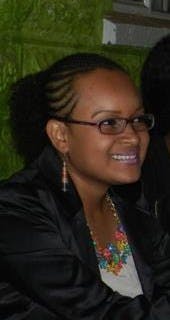Web 2.0 for Empowering Women & Defending Human Rights in Sudan: Work Under Progress
Jan 21, 2015
Story
The Web 2.0 has reshaped the media. The most exciting thing about it is that people are creating the content. There is a space for mostly every person with internet access to create the news and share the very personal opinion; which may create public opinion. Another excitement is how your own words can reach out to thousands of people; they can be professionals, ordinary people or likely minded activists. As well as web 2.0 allows you to share very own opinions; it allows responding and interacting.
Web 2.0 has amplified women voices to be heard across the globe; regardless their race, age or their socioeconomic status. It really amazed me how young girls at ages of 14-15 years old are blogging about feminism and women rights. The influential role that 15 years old girl can play was proofed by the brave Malala Yousafzai which was shot in her forehead because of advocating and blogging for the girls education in Pakistan. In Sudan and many other countries Sexualized violence and rape incidents were kept in the dark because of the stigmatization of the victim and her family and perpetrators were allowed to skip the punishment; Web 2.0 technology helped revealing those incidents and encouraged women to expose what happening in the shades. Safia Ishag was the bravest young woman in Sudan to announce that on a Youtube video that she was kidnapped and gang raped by security officers as a punishment for her political activism. Revealing the abuse is the first step to stop it; Fawzia Saeed along with other fellow female employees at UNDP Pakistan has sparked a national anti-harassment movement that achieved passing legislation criminalizes sexual harassment by the parliament in 2010 .
Personally I found Web 2.0 tools empowering for me as a women human rights defender. Inspired by the Tunisian blogger Lina Bin Mihani and supported by my friends I've started blogging on August 2011. First I didn't think that my words can make a difference and blogging was my debriefing. I've started getting comments, followers and since April 2012 I got more than 16,000 visits to my site.
Sudanese youth inspired by Arab spring revolutions took up the streets on Jan 30th, 2011. They have used Facebook to send protests invitations. Although the protests were limited; but more people have joined June/ July 2012 anti-regime protests. Young activists are getting more proficient on utilizing Web 2.0 technologies and as a result improving their strategies. In June/ July 2012 protests twitter users has played a major roll on sharing information about protests, arrests and exposed crackdown on peaceful protestors to people, news agencies and human rights networks all over the world only by using #SudanRevolts hash tag.
From day to day many young activists (taking the above mentioned examples) are learning about web 2.0 tools and how to utilize it to advocate for a cause. Keeping learning and sharing experiences are in favor of empowering women to advocate for their rights.
References:
http://en.wikipedia.org/wiki/Malala_Yousafzai
http://www.ned.org/events/working-with-sharks-a-pakistani-womans-story-o...
http://ar.wikipedia.org/wiki/%D9%84%D9%8A%D9%86%D8%A7_%D8%A8%D9%86_%D9%8...




